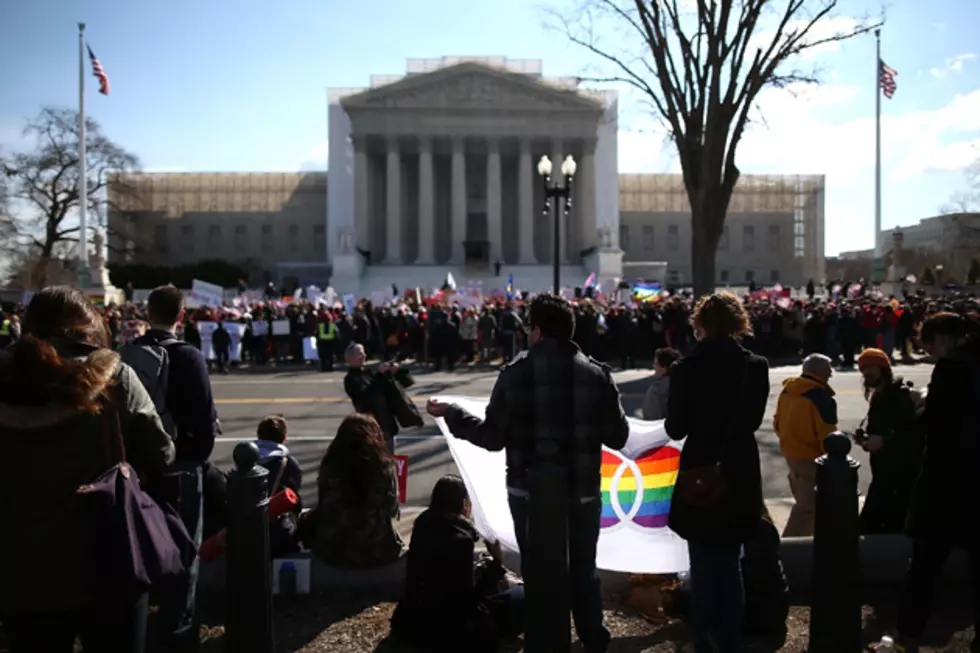
Defense of Marriage Act Goes Before Supreme Court
On Wednesday, the Supreme Court heard its second day of arguments on the issue of same-sex marriage, specifically a challenge to the 1996 federal Defense of Marriage Act (DOMA). This follows Tuesday's case concerning California's Proposition 8.
The DOMA case, known as United States v. Windsor, covers this:
The case concerns the part of the law that defines marriage as the union of a man and a woman for purposes of federal benefits. Should the court strike it down, same-sex couples in the nine states that allow such unions, along with the District of Columbia, would start to receive federal benefits. Such a ruling would not require other states to allow same-sex marriage.
So what happened at the Supreme Court today?
The court's justices broke down along their usual lines, with the conservative bloc (Chief Justice John Roberts, Clarence Thomas, Antonin Scalia, Samuel Alito) supporting DOMA and the liberals (Steven Breyer, Ruth Bader Ginsburg, Elena Kagan, Sonia Sotomayor) looking to strike it down. The swing justice, Anthony Kennedy, in this case appeared to be leaning toward siding with the liberals, mostly because he feels matters of marriage should be left to the states, not the federal government.
Like the argument on Tuesday, Wednesday's hearing does not mean that the Supreme Court is likely to rule either that same-sex marriage is a constitutionally guaranteed right or that it is unconstitutional and should be banned nationwide; rather, the justices will likely rule narrowly. In the DOMA case, this means that—if the 5-4 split involves Kennedy siding with the liberal bloc, as appears probable—same-sex couples who were married in the various states that permit it would not be denied any of the more than 1,000 federal benefits allotted to opposite-sex couples. These include inheritance rights, Social Security benefits and many others.
One other important issue discussed today was whether the Supreme Court should even rule on the case at all. The first 50 minutes of argument covered that very topic, focusing on the fact that the Obama Administration has refused to defend DOMA because they feel it is unconstitutional, and therefore the Supreme Court may lack authority to overturn an appeals court's decision striking down the law.
In summary, it seems likely that DOMA will be struck down by a 5-4 vote, but we won't know for quite some time. The decision will probably be a narrow one, meaning that supporters and opponents of same-sex marriage will need to take time to parse through the opinions of the justices. At that point we will have a much clearer idea of where the issue of gay marriage, legally, stands in 2013.
[N.Y. Times, N.Y. Times again, SCOTUSBlog]
More From Praise 93.3




![My Wife Surprised Me With Karaoke Night [Video]](http://townsquare.media/site/962/files/2020/10/79033818_10157729365794593_7143174123902992384_n.jpg?w=980&q=75)




